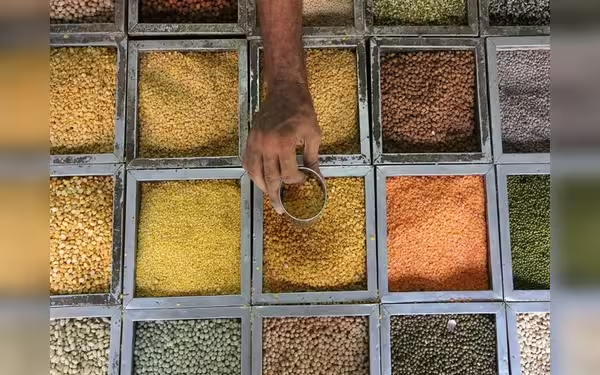Saturday, November 16, 2024 05:33 PM
Rising Kitchen Item Prices Strain Pakistani Households
- Live chicken prices soar to Rs510 per kilogram.
- Vegetable prices, including tomatoes, have dramatically increased.
- Inflation affects essential food items across the board.
 Image Credits: brecorder
Image Credits: brecorderRising prices of essential kitchen items in Pakistan strain household budgets amid ongoing inflation.
The rising cost of essential kitchen items has become a pressing concern for households across Pakistan. As families strive to manage their budgets, the latest weekly survey reveals that prices for various food items remain stubbornly high in the retail market. This situation not only affects daily meal planning but also places a significant strain on the overall cost of living.
According to the survey, the price of live chicken has reached an alarming Rs510 per kilogram, a notable increase from Rs455 per kilogram just a week prior. Similarly, the cost of a dozen farm eggs has risen to Rs300, up from Rs290. The price of cow meat has also surged, with rates now at Rs1300 per kilogram for boneless cuts and Rs900 for cuts with bone. Mutton prices are no exception, with costs ranging between Rs2400 and Rs2500 per kilogram in the open market.
Vegetable prices have seen a dramatic increase as well. Tomatoes, for instance, are now priced at Rs100 per kilogram, compared to Rs60 and Rs70 in the previous week. Onions have jumped to Rs180 from Rs150 per kilogram. Other vegetables such as ginger and garlic are priced at Rs800 and Rs400-600 per kilogram, respectively. Green chilies are being sold at Rs120-150 per kilogram, while peas and capsicum are priced between Rs250 and Rs300 per kilogram.
In addition to vegetables, staple items like flour have remained unchanged, with a 20-kilogram sack of fine flour selling for Rs2200-2300. The prices of various types of rice also reflect the ongoing inflation, with good quality rice (sela) available at Rs260-270 per kilogram, while lower quality rice is priced at Rs250 per kilogram.
The survey further highlights that prices for pulses have not been spared. For example, dal mash is available at Rs600 per kilogram, while other varieties like dal masoor and dal chilka are priced at Rs320 per kilogram. The cost of gram flour (baisen) stands at Rs280 per kilogram, indicating a broader trend of rising prices across essential food categories.
Fruits are also feeling the pinch, with apples priced between Rs200-250 per kilogram and bananas at Rs100-150 or Rs200 per dozen. Even beverages have not escaped the inflationary trend, with black tea being sold at Rs1400-1500 per kilogram.
This persistent rise in prices poses a significant challenge for families trying to make ends meet. As the cost of living continues to climb, it is crucial for consumers to remain vigilant and seek out the best deals while also advocating for measures that can help stabilize prices. Understanding these trends can empower families to make informed decisions about their purchases, ultimately leading to better financial management in these challenging times.













